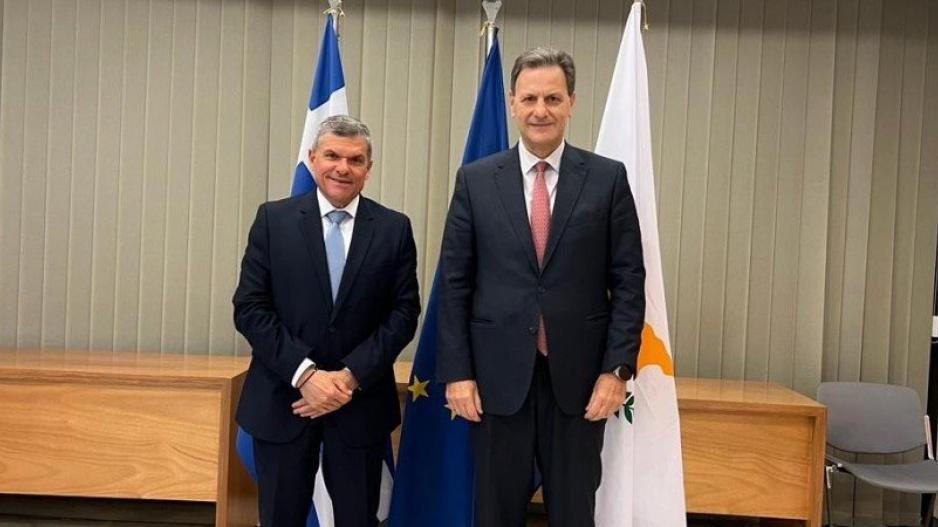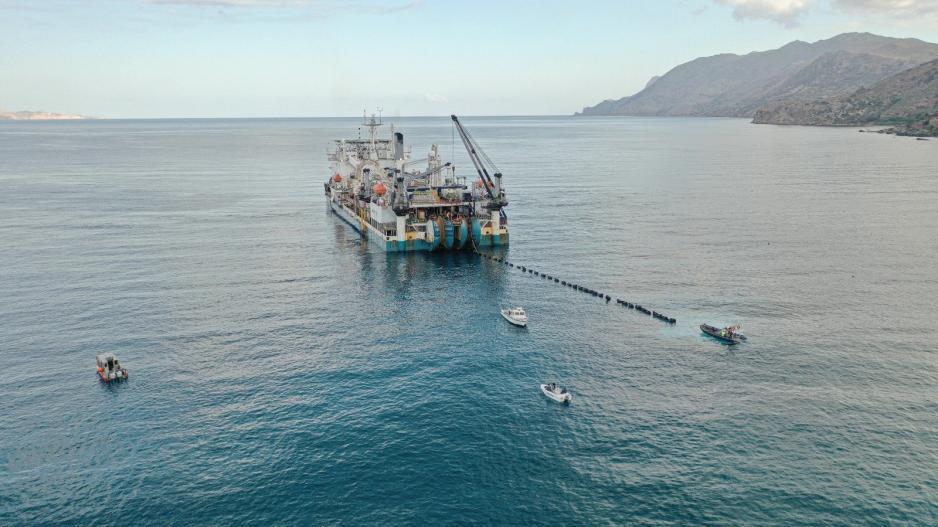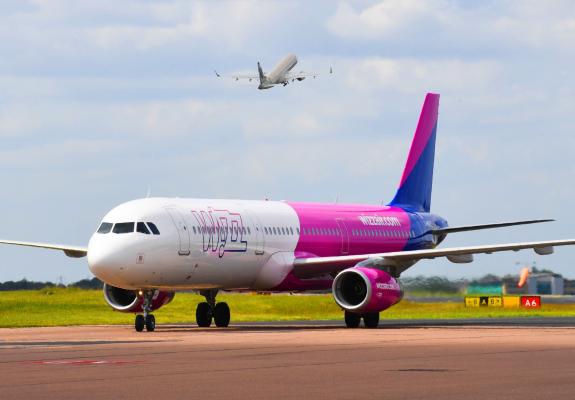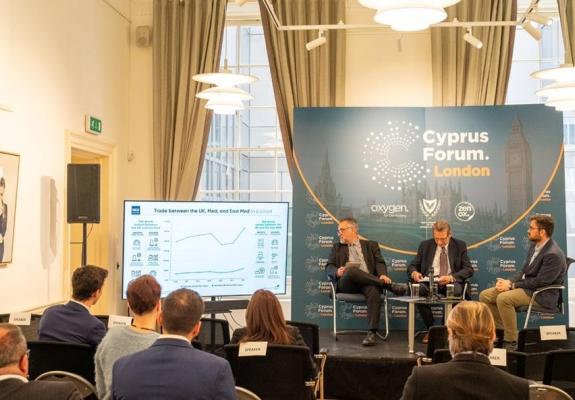Great Sea Interconnector: New Navtex for Seabed Research
Cyprus Seeks Clarity on Investment Terms in Cross-Border Energy Project
The Greek government is preparing to issue a new round of Navtex notices for seabed research in international waters to the east, following the successful completion of the latest research phase, despite a recent incident involving a Turkish warship.
As soon as weather conditions improve, Greek authorities will proceed with new Navtex announcements, enabling the continuation of cable-laying operations by the two vessels, "Ievoli Relume" and "NG Worker".

Meanwhile, today marks a key meeting between Greek Energy Minister Theodoros Skylakakis and Cypriot Energy Minister George Papanastasiou, where Cyprus is expected to outline several prerequisites for its equity participation in the energy project.
On the sidelines of the 14th Athens Energy Summit, where both ministers participated in a panel on geopolitical energy developments, Papanastasiou spoke to journalists, expressing optimism about overcoming the remaining obstacles.
"Things have matured, and I believe we will see progress in the meeting," the Cypriot minister stated, emphasizing the importance of international investment funds in projects like the Greece-Cyprus-Israel (GSI) energy project, which carry significant geopolitical risks.
He further noted that: "To manage such risks, you need strong investors who can form alliances to address geopolitical challenges. The involvement of a major American investment fund, for example, carries a different weight than that of a Cypriot fund."
Despite the intergovernmental agreement signed in September, key aspects of the project remain inactive four months later.
One major outstanding issue is the lack of approval from the Cyprus Energy Regulatory Authority (CERA) for the project's operational costs. Without this approval, the project cannot generate revenue, a crucial factor for attracting major investors—especially for a €1.9 billion project of this scale and complexity.
While stakeholders acknowledge the primary challenge, additional financial and regulatory gaps must be addressed to ensure the project's viability. Resolving these outstanding issues will provide the project with greater stability, particularly at a time when Turkey is testing Greece’s resilience in the region.






